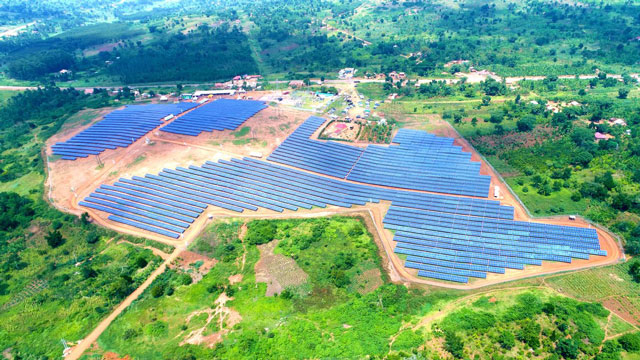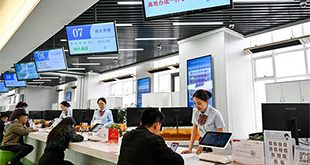
Xsabo Group plans to invest US$200 million in solar project
Kampala, Uganda | JULIUS BUSINGE | Xsabo Group plans to invest US$200million in the generation of solar power to supply to the national grid, according to its Managing Director and Chief Executive Officer, David Alobo.
Alobo, who on Jan. 10, together with President Yoweri Museveni and Vice President, Edward Ssekandi, unveiled the first 20MW solar plant in Kabulasoke in Gomba District worth US$24.5million, said the firm in partnership with the Dutch-based Great Lakes Energy Company N.V, plans to generate 150MW to the national grid in the next few years.
He said the company plans to implement similar projects in Soroti (50MW), Mubende (50MW), Kasese (20MW), and Lira (10MW). The development work in Mubende is expected to commence in April this year followed up with Soroti and others.
“This is just the beginning; we have the money ready,” he said. “We are doing this out of patriotism and love for our dear country and our dear people.”
The Kabulasoke power project sits on a 120 acre piece of land with a 20-year generation concession issued by the industry regulator, Electricity Regulatory Authority.
Alobo said households that surround the projects would benefit through land compensation and free electricity connectivity to the nearby schools and health centres.
“The general idea behind these projects is to generally support investments, power industries which are instrumental in supporting growth of the economy,” he said.
He, however, said there is a lot of bureaucracy in the process of acquiring generation licenses and investment permits and a lot of resistance fronted by area residents with backing from politicians.
The company would sell its electricity to Uganda Electricity Transmission Company Limited at U$11cents. This cost, however, is the same as that of electricity generated at Bujagali Hydropower dam in Jinja, which some sector experts have described as too expensive to stimulate industrial growth.
This development comes as the ERA revealed plans to commission a 10MW solar plant in Mayuge District, eastern Uganda.
In 2016, two companies – Access Power and PV Power Company Limited launched 10MW solar plants each in Soroti and Tororo respectively. The two plants, however, were developed under the Global Energy Transfer Feed in Tariff (“GET FiT”), a support scheme for renewable energy projects managed by Germany’s KfW Development Bank in partnership with the Electricity Regulatory Agency (ERA).
The Kabulasoke solar project comes at the time the government plans to commission the 183MW Isimba and the 600MW Karuma hydropower dams sometime this year. The government plans to set the cost of electricity from these dams at US$4-5 cents per kWh.
Sector analysts say the completion of 150MW solar power project will make a tangible contribution to increasing the country’s installed electricity generation capacity that stood at 955MW (hydropower, thermo) as at the end of last year amidst growing demand from domestic and commercial consumers.
Analysts are backing continued investments in the electricity sector as more investors enter Uganda’s market. This is expected to cause an increase in Uganda’s peak demand for electricity that was recorded at around 600MW as at the end of last year.
Simon D’Ujanga, the state minister for energy and mineral development said the country will have 120MW of solar energy connected to the national grid as at the end of this year.
“We want to use solar to enhance electricity access in rural areas,” he said, “These investors are complementing government efforts of supporting industrialisation and socio-economic development.”
The President’s view
President Museveni said at the launch that as the country increases electricity generation, user tariffs currently ranging between Shs350-700kWh for the various categories of consumers would gradually reduce.
He also said households should get ready and tap into the new opportunities in the frontline sectors of information and communication technologies, commercial agriculture, and industry and services given that the problem of electricity is being tackled.
The government would also continue to support households to improve their income through operation wealth creation programme, Museveni said.
 The Independent Uganda: You get the Truth we Pay the Price
The Independent Uganda: You get the Truth we Pay the Price




requesting for industrial training
I am a painter by profession am a langi ,by tribe ,23yrs of age
requesting for empolyment